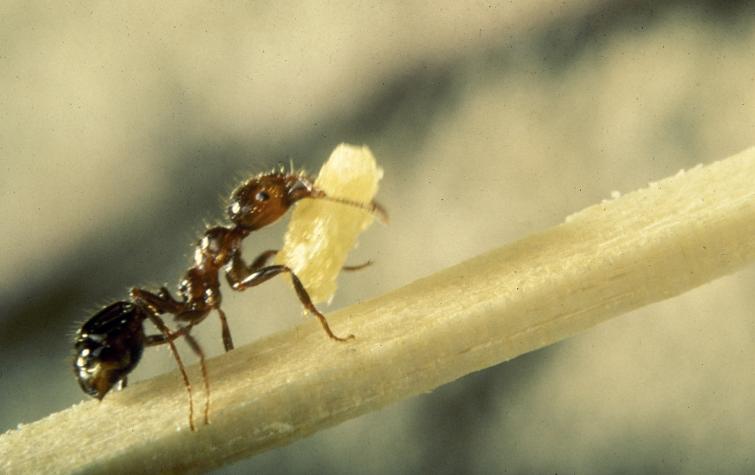
Thatch management is key to maintaining zoysia grass lawns
COLUMBIA, Mo.—Due to warm, humid days this spring, homeowners and lawn managers might notice an off-yellow or orange coloring of zoysia grass lawns, said a University of Missouri turf researcher. Large brown patch, or zoysia patch, is a fungal disease that creates patches of discolored zoysia grass, leading to weed invasion, said Brad Fresenburg. No truly effective fungicides are available over the counter.
Attracting amphibians to your garden
BLUE SPRINGS, Mo. – One-third of Missouri’s 43 native amphibians have deteriorating populations, but you can help out by taking some steps to make your backyard more attractive to amphibians, said a University of Missouri Extension horticulturist.

Fire ants may be hiding in imported hay
COLUMBIA, Mo. – Missouri farmers who bought hay from parts of the southern U.S. may have accidentally brought along a nasty visitor. The imported fire ant, an aggressive, stinging insect native to South America, has infested more than 380 million acres in at least 13 states, according to the USDA’s Animal and Plant Health Inspection Service (APHIS). The ants can spread to new locations as stowaways in bales of hay.
Don't overwater heat-stressed plants
COLUMBIA, Mo. –Landscape plants have flourished over an ideal spring. Azaleas and hydrangeas have never looked better, but many of the lush leaves that developed during the mild weather will scorch, turn brown or even fall off when the summer heat returns, said a University of Missouri Extension horticulturist.
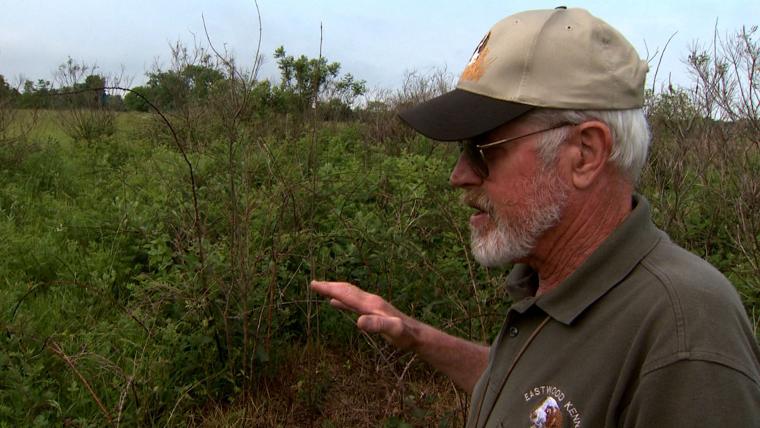
You've got quail
COLUMBIA, Mo. – “If you get up in the morning and you hear quail singing and it doesn’t make your heart lift, you missed out on a big part of what life really is,” says farmer George Hobson. Modern farming techniques have erased much of the habitat of the once-abundant northern bobwhite quail, but on Hobson’s farm and others like it, the quail population is going up—without dragging profits down.
Is it time to water the lawn?
COLUMBIA, Mo. – Most Missouri lawns have had plenty of water during this year’s cool, wet spring, so homeowners may not be thinking of how to properly irrigate those lush, green lawns now that the year’s first summer heat blast has arrived. Signs that a lawn needs watering include purple-blue wilting leaves, footprints that persist for several hours and folded or rolled leaves, said Brad Fresenburg, University of Missouri Extension…
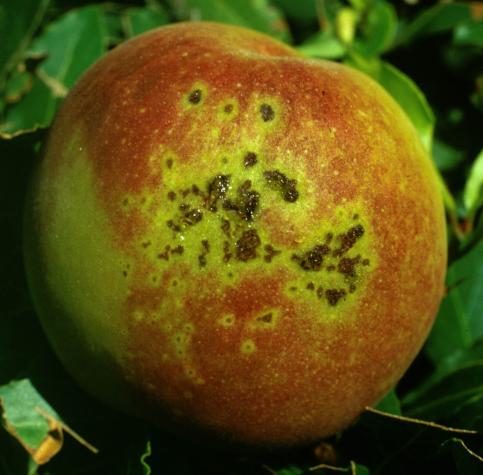
Fruit with bacterial spot not pretty, but safe to eat
COLUMBIA, Mo.—Consumers used to picture-perfect fruit at the supermarket might shy away from homegrown or locally produced fruits blemished by a common disease of peach, nectarine, apricot or plum, but fruits affected by bacterial spot are safe to eat.
Check for brown patch in your lawn before reaching for garden hose
COLUMBIA, Mo.—Homeowners who see parts of their lawn turning brown may reach for a garden hose, thinking the grass needs a drink. But that might just make the problem worse, warns a University of Missouri Extension regional agronomist.Before watering, make sure the browning isn’t the result of a fungal disease called brown patch, said Ted Fry.
Don’t ignore soil fertility after planting
BLUE SPRINGS, Mo. – After spring planting, farmers often put soil fertility on the back burner to concentrate on protecting crops from insects, diseases and weeds. This can be a costly mistake, said a University of Missouri Extension agronomy specialist. “Farmers should scout for nutrient deficiencies throughout the growing season, just as they monitor for insects, diseases and weeds,” said Travis Harper.
Safely preserve your garden tomatoes
Learn how to safely preserve home-grown tomatoes by selecting ripe fruit, acidifying, canning or freezing to keep flavor year-round.
Keeping forestland in the family
Learn how succession planning helps woodland owners preserve family forestland while addressing financial, legal, and emotional challenges.
Preserving fruit salsas
BLUE SPRINGS, Mo. – Fruit salsas offer new flavors for home food preservers. “The vibrantly colored fruit, the herbs and the heat of onions and peppers add zest to meals,” said Susan Mills-Gray, University of Missouri Extension nutrition and health education specialist. To ensure safety, however, it’s important to follow tested recipes when canning homemade salsas.
Fly control in cattle
BLUE SPRINGS, Mo. - Flies cost the cattle industry more than $500 million each year, causing slowed weight gain, reduced milk production and diseases such as pinkeye and anaplasmosis. Effective fly control may require combined use of products, said a University of Missouri Extension livestock specialist. The recommended economic threshold for a pesticide program is 200 flies per animal, said David Hoffman.
Getting the best results when freezing produce
COLUMBIA, Mo. – Freezing vegetables is a good option for people who want to preserve their garden produce but are daunted by the idea of canning, said a University of Missouri Extension nutrition and health education specialist. “The color, flavor and texture of the produce are often maintained when it is frozen, and the freezing process is easier and less time-consuming than canning,” said Tammy Roberts. Blanch before freezing
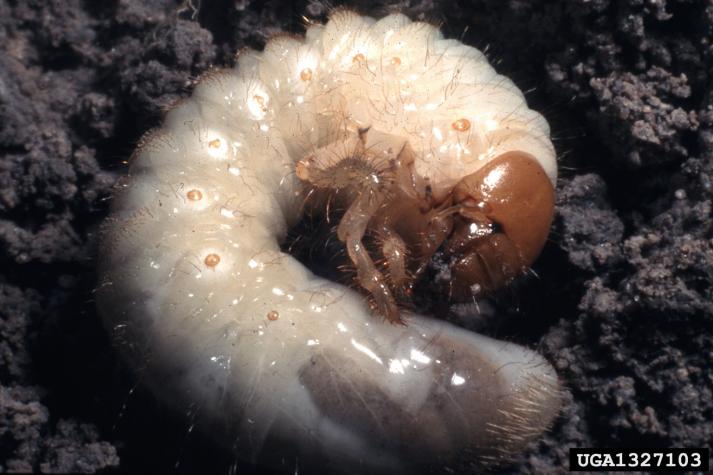
Grubs may pay unwelcome visit to lawns
COLUMBIA, Mo. –During August, homeowners may notice signs of grubs, an unwelcome annual visitor to healthy, green lawns. “The earliest symptoms of white grubs feeding on turf grass roots are wilted patches,” said Brad Fresenburg, University of Missouri Extension turf researcher.
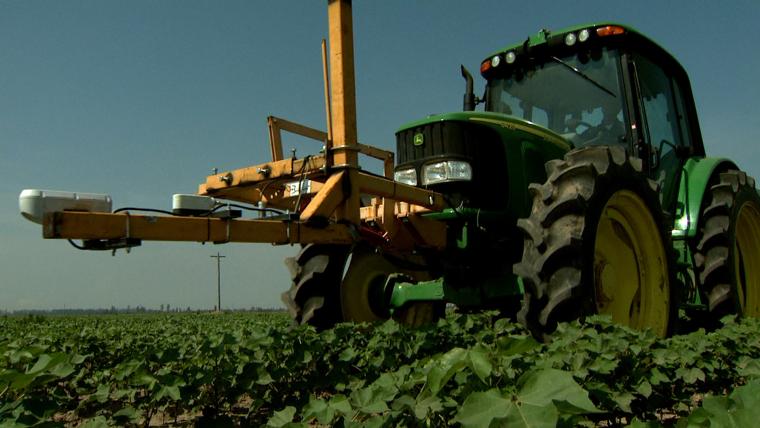
Seeing green
PORTAGEVILLE, Mo. – When fertilizer was cheap, it made sense for farmers to be generous with nitrogen. With today’s prices, producers want to keep fertilizer costs down without reducing yield.University of Missouri scientists have played a key role in developing new technology that takes the guesswork out of deciding how much nitrogen to apply to crops. The technology has the potential to keep money in farmers’ pockets and help…
Bottled water not necessarily better than water from the tap
COLUMBIA, Mo. – Many Americans believe that bottled water is safer than household tap water, but that isn’t necessarily the case.“Just because the water is said to come from some clear mountain stream doesn’t mean it is completely safe to drink,” said Bob Broz, University of Missouri Extension water quality specialist. “Who knows what a stream may pick up along the way?”
Smart lawn care protects the environment
BLUE SPRINGS, Mo. - On a per-acre basis, home lawns affect streams, rivers and lakes more than most farming operations, said a University of Missouri Extension horticulture specialist. However, homeowners can be more environmentally responsible by managing stormwater runoff and using proper lawn care techniques.
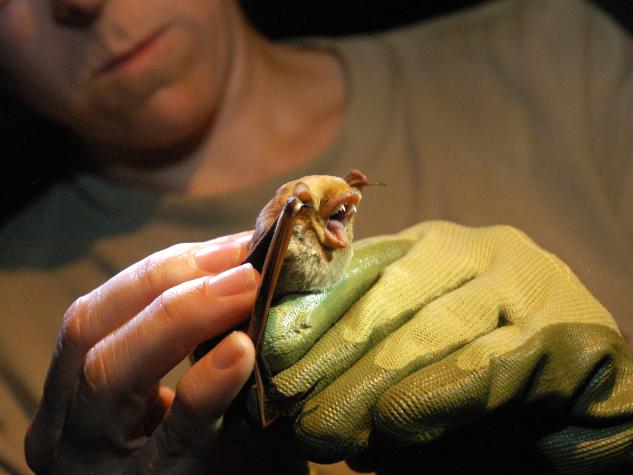
Bat Blitz nets more than 600 bats in southeastern Missouri
An intensive, three-night survey of the bat population on public lands in southeastern Missouri netted more than 600 bats, including representatives of several endangered, vulnerable or seldom-seen species.
Tree wraps can help prevent winter’s southwest injury
COLUMBIA, Mo. - Tree wraps or guards can lessen the risk of southwest injury, a condition that can afflict young trees in winter, said a University of Missouri horticulturist.Southwest injury, or trunk scald, occurs on the lower portion of the trunk, said Michele Warmund. Low-angle winter sunlight warms trunk tissue during the day. This warming can activate dormant cells that become vulnerable to injury as temperatures plunge in the…
Plants can remove indoor air pollutants
COLUMBIA, Mo. - Overwintering plants indoors may improve air quality in your home during the long, chilly months, said a University of Missouri horticulturist."Research has found that plants can be very useful in absorbing harmful pollutants," said Mary Kroening.
Freezing your credit file
BLUE SPRINGS, Mo. - One of the fastest-growing financial crimes in the country is identity theft. One countermeasure is to freeze your credit file to keep thieves from establishing credit in your name, said a University of Missouri Extension family financial education specialist.
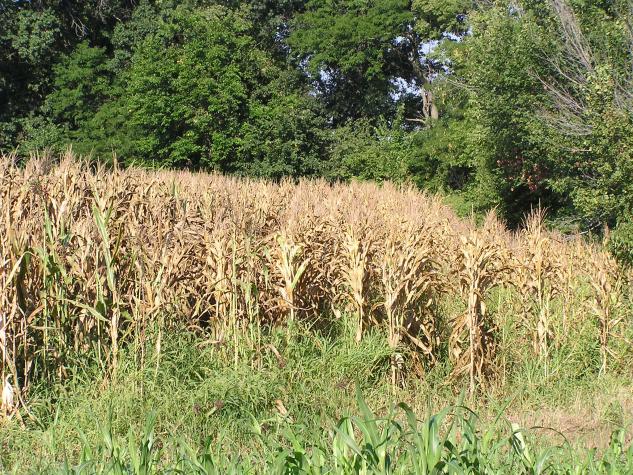
Field borders benefit wildlife on the farm
COLUMBIA, Mo. - Weedy field borders and brushy fence lines may not be attractive to some people, but for many Missouri farm wildlife and game species, those places are prime real estate.
MU students design biodegradable caskets
COLUMBIA, Mo. - Growing interest in environmentally friendly burials has inspired a team of University of Missouri biological engineering students to develop plans for caskets made of biodegradable materials, including linoleum."Biodegradable caskets lack contaminants that would otherwise seep into the groundwater and surrounding ecosystems," said Ben Goldschmidt, a senior in biological engineering from Columbia.
Ice melters may harm nearby trees
COLUMBIA, Mo.- Homeowners should be careful when using ice melters close to trees this winter, said a University of Missouri Extension forester. "Nearly all ice melters are salts," said Hank Stelzer. They work by lowering the freezing point of water to well below 32 degrees.
